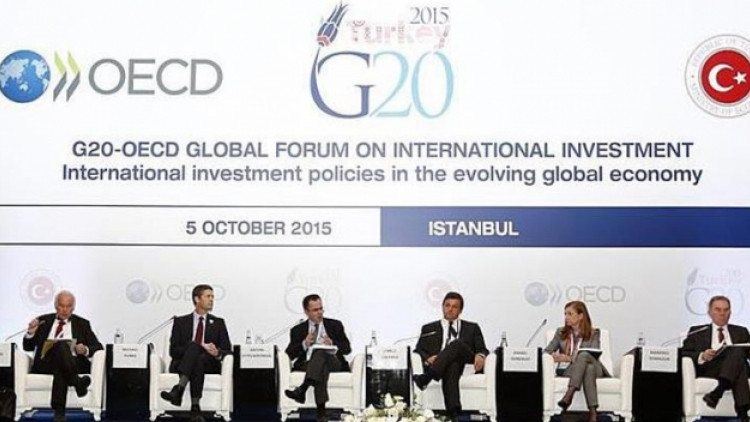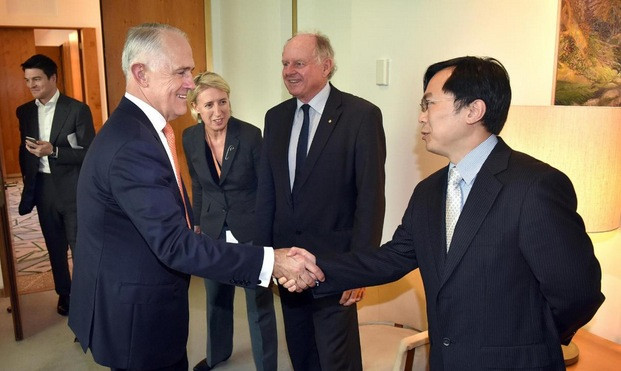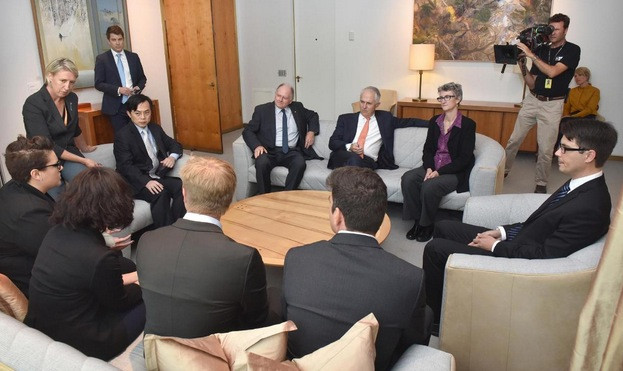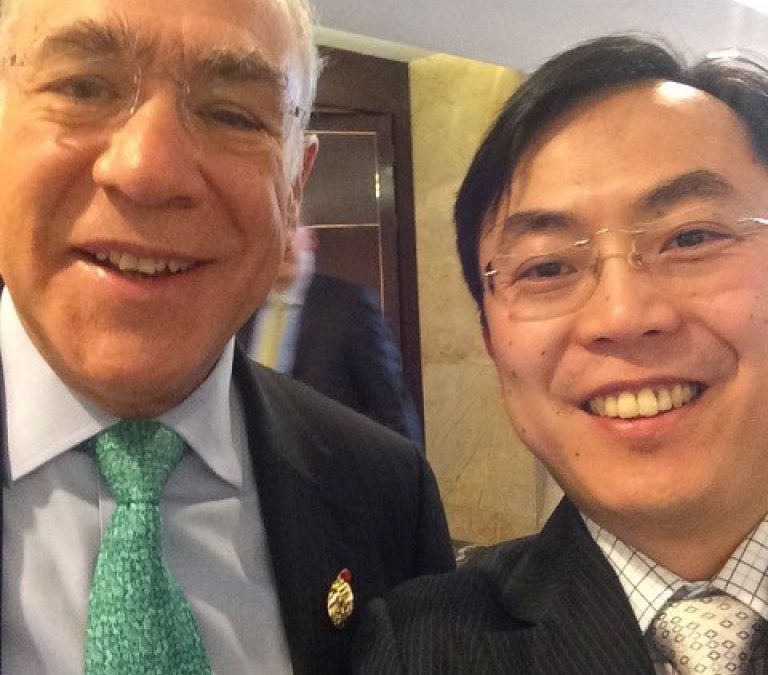The OECD sets high standards for member countries and the International Community.
Dr Andy Song with Jose Angel Gurria Secretary General of the Organization for Economic Co-operation and Development ( OECD) during events in China under China’s G20 Presidency in 2016.

The OECD sets high standards for member countries and the International Community
Often referred to as the rich countries club the Paris based OECD has in our view at eNotus Inc been a well informed and disciplined body providing essential information to the global community of nations well beyond its core economic competencies. The many fields of concern that it’s well balanced staff and leadership provide are among the best available research into these topics.
Although today we have among our staff and advisors experts from diverse backgrounds at the OECD we consider these people among our best assets guiding our own work on subjects ranging from trust in business to the new demands created by digital economy and rapid emergence of Artificial Intelligence and its potential impacts on the future of work and the current jobs and educational dilemmas affecting the majority of countries.
The OECD through its various affiliated bodies such as the Business and Industry Advisory Committee ( BIAC) shown a level headed and informed stance towards new technologies and social movements sometimes even providing thought leadership in fields like SMEs and the Global Value Chains.
A lot of criticism has been directed at the UN and other global agencies over recent years and there are even current threats to with holdfunding, however the independence of these organizations is essential to an effective international community and the OECD is one that demonstrates its value through the quality and consistency of its work.
The OECD’s core values
- Objective: Our analyses and recommendations are independent and evidence-based.
- Open: We encourage debate and a shared understanding of critical global issues.
- Bold: We dare to challenge conventional wisdom starting with our own.
- Pioneering: We identify and address emerging and long term challenges.
- Ethical: Our credibility is built on trust, integrity and transparency.
Song meets PM at Canberra science event

RMIT computer scientist Dr Andy Song meets Prime Minister Malcolm Turnbull at Science meets Parliament 2016. Photo: Mark Graham, Science meets Parliament 2016.

Song was one of seven scientists invited to discuss their research with the Prime Minister. Photo: Mark Graham, Science meets Parliament 2016.
21 Mar 2016
It’s not every day that you have your work praised by the Prime Minister in person, but Dr Andy Song found himself in just that situation during Science meets Parliament 2016 in Canberra.
Science meets Parliament (SmP) is an annual event that brings together over 200 scientists from all over Australia for face-to-face meetings with parliamentarians and other officials in the nation’s capital.
A Senior Lecturer from RMIT’s School of Science, Song was the university’s sole representative at the event held earlier this month, yet was specially selected as one of only seven scientists to meet the Prime Minister, Malcolm Turnbull.
“After a round of rather formal introduction and greeting, we sat down and introduced our research one by one,” he said.
“Malcolm asked questions to almost everyone and, from memory, there were two scientists working on astronomy and gravitational waves, two biologists and two medical researchers, but I was the only one from computer science.”
SmP is organised by Science and Technology Australia as an opportunity for scientists to experience life on Capital Hill and discuss their research and future projects with political leaders, but Song didn’t expect to meet the most important leader of them all.
“It was slightly surreal, but an interesting experience, and of course a great opportunity,” he said.
Song was invited to SmP after being recommended to Science Technology Australia by CORE, the Computing Research and Education Association of Australasia, who recommended only four researchers in total and funded the whole trip.
“I introduced my work as ‘Artificial Intelligence for Industry Applications’ and described a few projects that we have been working on, including on road safety, warehouse optimisation and business trust analysis.
“He listened quite carefully, said ‘well done,’ and then reiterated the importance of connecting science innovation with industry, ‘because that is something that we don’t do well’, which was one of the main topics in the whole event.”
As well as listening to the maiden speech of Australia’s Chief Scientist, Dr Alan Finkel AO, Song met a number of other politicians and influential industry representatives, including John Brumby, Sean Edwards and Kim Carr, among others.
This was the 16th annual national gathering of selected science and technology researchers and included a two-day program of professional development and networking, aimed at helping scientists better communicate their science to the media, policymakers andparliamentarians.
Source – Story: Dan Walder
IT bungles cost taxpayers hundreds of millions
Song meets PM at Canberra science event
However, SMEs – which account for about 60 to 70 percent of employment and over 50 percent of value-added in OECD countries – have struggled to access the financing they require to participate in and across world markets, as banks have deleveraged to meet new regulatory requirements
Often referred to as the rich countries club the Paris based OECD has in our view at eNotus Inc been a well informed and disciplined body providing essential information to the global community of nations well beyond its core economic competencies. The many fields of concern that it’s well balanced staff and leadership provide are among the best available research into these topics.
Although today we have among our staff and advisors experts from diverse backgrounds at the OECD we consider these people among our best assets guiding our own work on subjects ranging from trust in business to the new demands created by digital economy and rapid emergence of Artificial Intelligence and its potential impacts on the future of work and the current jobs and educational dilemmas affecting the majority of countries.
The OECD through its various affiliated bodies such as the Business and Industry Advisory Committee ( BIAC) shown a level headed and informed stance towards new technologies and social movements sometimes even providing thought leadership in fields like SMEs and the Global Value Chains.

